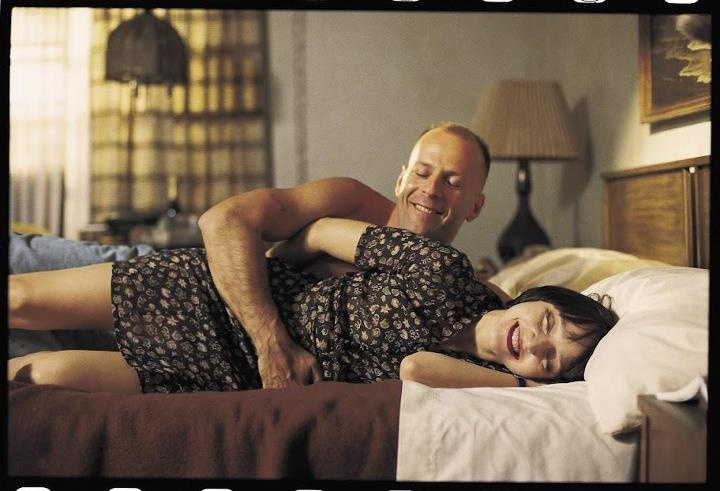Tarantino is a somewhat erratic filmmaker. None of his films are actually bad (save his segment of Four Rooms, maybe) but some are fantastic and some waver around mediocre. It’s not chronological, either; he isn’t a filmmaker who has fallen off (yet, at least.)
There is one fairly common theme to his weaker moments, though, I think. It comes down to the fact that his grasp of men’s genre material is much stronger than his grasp of women’s genre material.
At least for me, all of Tarantino’s weakest filmmaking moments happen when he tries to do romance, or something like soap opera. The Butch/Fabiene romance in Pulp Fiction is treacly and deeply unconvincing; you end up hating both characters, not falling in love with them. Similarly, the soap opera aspects of Kill Bill are a mess. There’s never even a modicum of chemistry between Bill and the Bride; their endless heart to heart at the end of part 2 is tedious rather than heart-wrenching. The Bride’s transformative experience with motherhood is completely unconvincing, and also unquestioned. Django is supposedly built around a passionate romance, but it has no idea how to represent that, or really do anything with it beyond motivating Django to shoot lots of people.
Tarantino is generally very good at undermining, or tinkering with, or examining male genre conventions, whether he’s telling you how good it feels to watch someone cut off an ear, or thinking about what pacifism does to narrative (which is to me one of the most fascinating parts of Pulp Fiction.) But when he deals with traditionally women-oriented genre material, he’s just at sea. The best he can do is to lace his treacle with half-hearted irony. But he’s not passionate enough about the material to savage it or embrace it. He just sort of lets it sit there helplessly, until he can move onto something else. It’s telling, I think, that Tarantino’s great romances are ones that are not quite romances; Jackie Brown and Max, or Vince and Mia.
This isn’t to say that Tarantino is sexist. He sometimes is, I’d say, but he also has a lot of great female characters, who he treats with interest, compassion, and respect. And of course lots of women like his films, just like lots of women like “male” genre work. Compared to many male filmmakers, I’d say that Tarantino is even quite interested in representing a diversity of women on screen (though his casts overall still tip male.) But what he’s not interested in, or attuned to, is women’s genre work. A Quentin Tarantino romantic comedy, in short, would be a very bad idea.

